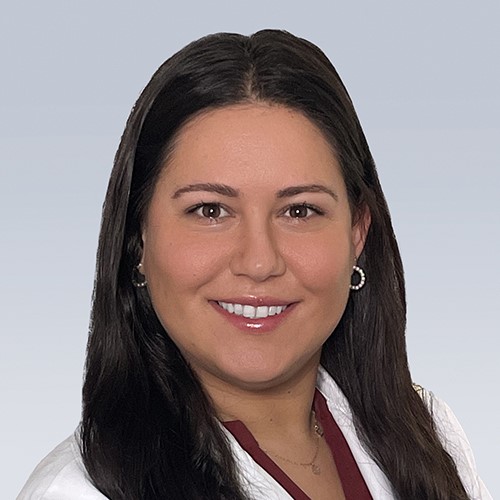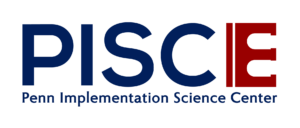Programs | Penn PORTAL: University of Pennsylvania Patient-Oriented Research and Training to Accelerate Learning
Penn PORTAL: University of Pennsylvania Patient-Oriented Research and Training to Accelerate Learning
About
Penn PORTAL is funded by the Agency for Healthcare Research and Quality (AHRQ) and the Patient-Centered Outcomes Research Institute (PCORI) to accelerate progress toward an integrated Learning Health System (LHS) at Penn. The program is a collaborative effort across many centers including the PAIR Center, the Penn Medicine Nudge Unit, the Penn Medicine Center for Health Equity Advancement (CHEA), the Center for Healthcare Improvement and Patient Safety (CHIPS), the Leonard Davis Institute of Health Economics (LDI), and the Penn Implementation Science Center (PISCE).
For general inquiries, please send us an email.
To connect with the LHS community at Penn, sign up for our newsletter.
LHS Pathways
Penn PORTAL is a P30 program (P30HS029745) uniting behavioral, data, and implementation scientists from Penn’s Schools of Medicine, Nursing, Engineering, and Business to support the research and training opportunities of the LHS Scientists. These experts are joined by leaders in the design, analysis, equity, and ethics of health services research studies, and leaders in clinical operations.
The Penn PORTAL program provides two pathways for research and training in LHS science: Scientist Investigator and Clinician Leader. Additional limited training opportunities are offered through the Affiliate Scholar program.
LHS Pathway 01
Scientist Investigator
Directed toward early-career clinician- and non-clinician investigators at Penn seeking to become independent and externally funded LHS Scientists.
LHS Pathway 02
Clinician Leader
Directed toward faculty clinicians and other health care professionals at Penn who are interested in pursuing training and mentorship in LHS science.
Program Overview
Research & Training Opportunities (2 years)
Didactic training in Learning Health Systems
Leadership development training
Recommended coursework tailored to each pathway
Mentorship in research and operations
LHS Design Studios1
LHS Seminar Series1
Participation in Health Equity Week, Nudge Unit Symposium, and the Implementation Science Institute
Development and completion of LHS research or QI project2
Access to consultants in equity, community engagement, ethics, research, and data analysis
Staff support from the PAIR Center, Nudge Unit and CHIPS for conducting LHS projects
1Affiliate Scholars have access to the LHS Design Studios and LHS Seminar Series.
2These research projects will be in Penn Medicine and AHRQ/PCORI priority areas and not restricted to serious illness care.
Awardees
Cycle 2 (2025-2027)
Congratulations to the Penn PORTAL Cycle 2 awardees! Learn about our newest cohort below.

Arina Chesnokova, MD, MPH, MSHP, MSCP
LHS Pathway
Scientist Investigator
Dr. Chesnokova is an Assistant Professor of Obstetrics and Gynecology, a physician at the Philadelphia VA Medical Center, and an LDI Senior Fellow. She is interested in midlife and menopause care with a focus on eliminating disparities in obstetrics and gynecology and uplifting underserved communities. Dr. Chesnokova’s project will be directed towards Penn Medicine physicians with the goal of improving the menopause care trajectory for all women. Her project is titled, “Advancing Menopause Care: Investigating Barriers and Implementing Solutions for Menopausal Hormone Therapy Prescribing.”

Stephanie Van Decker, MD, MS
LHS Pathway
Clinician Leader
Dr. Van Decker is an Assistant Professor of Clinical Medicine, a Clinical Lead of General Pulmonology, and a Quality Improvement and Patient Safety Core Faculty for the Internal Medicine Residency Program. Dr. Van Decker is committed to addressing language barriers for limited English proficiency (LEP) patients and improving healthcare delivery for underserved and socioeconomically complex patient populations. The primary goal of her LHS quality improvement project is to understand and address barriers to providing language-concordant care. Her project is titled, “Enhancing Equitable and Consistent Access to Language Services to Patients at Penn Medicine.”
Cycle 1 (2024-2026)
Learn about our inaugural awardees below.

Renee Betancourt, MD
LHS Pathway
Clinician Leader
Dr. Betancourt is an Associate Professor of Clinical Family Medicine and Community Health, Vice Chair for Education at the Perelman School of Medicine’s Department of Family Medicine and Community Health, and an LDI Senior Fellow. With an overarching goal of working to eliminate health inequity, Dr. Betancourt’s LHS quality improvement project focuses on patients with chronic kidney disease at Penn Family Care and is titled, “Primary Care Identification and Management of CKD-3 to Improve Health Equity at the Level of the Provider.”

Eric Bressman, MD, MSHP
LHS Pathway
Scientist Investigator
Dr. Bressman is an Assistant Professor of Medicine in the Division of Hospital Medicine and an LDI Senior Fellow. He has a strong interest in promoting safe transitions of care for patients and improving communication and efficiency of this process for providers. Dr. Bressman’s LHS research project, titled “Integration of a large language model to draft high-quality end-of-rotation handoff between providers,” incorporates AI solutions to reduce documentation burden, increase efficiency and quality of the handoff process, and improve work satisfaction for clinicians.

Kyra O’Brien, MD, MSHP
LHS Pathway
Scientist Investigator
Dr. O’Brien is an Assistant Professor of Neurology, a dementia specialist at the Penn Memory Center, and an LDI Senior Fellow. Her research interests are in improving and transforming care delivery for people with dementia. Starting with Penn Medicine primary care, Dr. O’Brien’s LHS research project is designed to develop an effective and equitable pathway for early detection of cognitive impairment. Her project is titled, “Supporting Cognitive Evaluations in Primary Care.”

Denise Xu, MD
LHS Pathway
Clinician Leader
Dr. Xu is an Assistant Professor of Clinical Neurology, the Assistant Program Director for the Neurology Residency, and Director for the Neurology Sub-Internship at the Perelman School of Medicine. Dr. Xu is interested in delirium prevention and in improving sleep quality for patients admitted to a Penn Medicine hospital. Her LHS quality improvement project is titled, “Improving Inpatient Sleep Outcomes.”
Affiliate Scholars
In addition to the funded LHS Scientists, Penn PORTAL seeks to grow the LHS community at Penn Medicine by selecting Affiliate Scholars. Penn PORTAL Affiliate Scholars have access to select trainings and speaking opportunities, a limited mentorship program, and network opportunities with Penn PORTAL leadership and members of the Steering Committee and Internal Advisory Board.
Affiliate Scholars

Angela Cai, MD, MBA
Dr. Cai is an Assistant Professor of Clinical Emergency Medicine and the Medical Director of Practical Alternatives to Hospitalization (PATH). Her career is focused on leading system-level change to improve patient care and the clinical practice environment. She has a passion for advocacy and healthcare delivery innovation.

Rebecca Clark, PhD, RN
Dr. Clark is an Assistant Professor of Nursing in Family Medicine and Community Health and an LDI Senior Fellow. She is passionate about transforming inpatient maternity care to improve birth outcomes and furthering health equity by developing and implementing systemic interventions.

Kathryn Connell, PhD, RN
Dr. Connell is an Assistant Professor of Nursing in Behavioral Health Sciences and an LDI Senior Fellow. Using research that connects clinical practice, health policy, and data-driven inquiry, Dr. Connell is dedicated to improving patient outcomes by focusing on critical care delivery and nursing resources.

Elizabeth Moore, MD, MSHPM
Dr. Moore is an Assistant Professor of Clinical Psychiatry and the Medical Director of Quality Improvement in the Department of Psychiatry. With a strong background in quality improvement and expertise in social determinants of health, Dr. Moore is dedicated to bridging the gap between healthcare services and interventions and how they are received across patients in complicated social environments.

Jamaji Nwanaji-Enwerem, MD, PhD, MPP
Dr. Nwanji-Enwerem is a Health Equity Presidential Assistant Professor of Emergency Medicine and an LDI Senior Fellow. He is interested in employing molecular health biomarkers to investigate environmental impacts on aging and health, using the findings to inform diagnostic, preventative, and therapeutic strategies to improve health outcomes.

Keiran Rump, PhD
Dr. Rump is an Assistant Professor of Clinical Psychiatry, the Director of the Penn Medicine Autism Clinic, and the Associate Training Director and Child Track Lead of the Clinical Psychology Internship. Her career is dedicated to working with autistic individuals and improving their access to neurodiversity-affirming and evidence-based care.
How to Apply
Applications for the Penn PORTAL program occur annually in winter, with appointments by July 1. Cycle 3 applications will open December 8, 2025, and close February 15, 2026. Click here to learn more and apply.
Click here to sign up for our newsletter and be the first to learn when applications open for the next cycle.
Financial Support
Financial support is offered under two LHS Scientist pathways. Scientists Investigators receive up to $75K in salary plus benefits dedicating 75% effort for 2 years to program activities. Clinician Leaders receive 10% salary support plus benefits, dedicating 20% effort for 2 years to program activities. Both pathways offer an additional $2K to be used for training or project-related costs.
Eligibility Requirements
Full details of eligibility criteria for the two LHS Scientist pathways are outlined in the funding opportunity announcement. For specific questions in between funding opportunities, contact PORTAL@pennmedicine.upenn.edu. Please note that the funded LHS Scientists must have appointments at Penn Medicine by July 1 of the funding cycle and that research projects are expected to be completed at Penn Medicine.
Leadership
Penn PORTAL has three integrated cores, an equity and community engagement unit led by the Penn Medicine Center for Health Equity Advancement (CHEA), a steering committee, and an internal advisory board.
Principal Investigators
Drs. Scott Halpern, Kit Delgado, and Meeta Kerlin
Research Education Core Leaders
Drs. Rachel Werner and Jennifer Myers
Research and Data Analysis Core Leaders
Drs. Kevin Johnson and Michael Harhay
Equity and Community Engagement Unit
Dr. Jaya Aysola
Partners
Penn PORTAL is a collaborative effort across many centers. Learn more about our partners below.
Palliative and Advanced Illness Research (PAIR) Center
The PAIR Center provides expertise in LHS study design and execution, particularly around improving care for patients with serious illnesses and removing barriers to health equity for such patients. PAIR supports Penn PORTAL as the administrative hub and by providing leadership and expertise in research operations, data management and analytics, and direct assistance to the LHS Scientists in completing their LHS projects.
Nudge Unit
The Nudge Unit is the nation’s first behavioral research center embedded within a health system with the explicit goal of developing and evaluating innovative strategies to improve patient-centered outcomes. The Nudge Unit team supports Penn PORTAL by delivering design and health system navigation support, while also cultivating internal stakeholder relationships across university entities to facilitate implementation of the LHS Scientists’ projects in the health system.
Center for Health Equity Advancement (CHEA)
CHEA brings the science of equity and community engagement to the front lines of care delivery within Penn Medicine, with the goal of creating an LHS that mindfully strives to achieve equity through measurement, innovation, and evaluation. CHEA will support PORTAL in providing education, training, and operational expertise to guide equity-related projects and produce LHS Scientists skilled in community-informed, culturally humble approaches to scientific inquiry.
Leonard Davis Institute of Health Economics (LDI)
LDI offers a range of resources to Penn PORTAL’s LHS Scientists as Penn’s hub for research on health care delivery, health policy, and population health. These resources include access to data assets, a secure computing environment, and skilled statistical analysts; a community of multidisciplinary Penn faculty and trainees; and expertise in translating research into plain language and disseminating the results to relevant stakeholders.
Center for Healthcare Improvement and Patient Safety (CHIPS)
CHIPS is Penn’s hub for education and leadership in healthcare quality and safety across the health system, which Penn PORTAL leverages for overseeing the education, mentorship, and advising program for our LHS Scientists. CHIPS is experienced in training clinicians in an interprofessional and interdisciplinary learning environment and provides mentored experiences that empower them to improve the quality of healthcare delivery in their chosen area of interest.
Penn Implementation Science Center (PISCE)
PISCE advances the science and practice of implementation by building capacity, driving methodological innovation, fostering collaboration, and encouraging community within Penn Medicine. PISCE provides expertise and training in implementation science with a four-day Implementation Science Institute intensive course offered annually. The Penn PORTAL program offers training funds to offset the costs of the institute for LHS Scientists.





